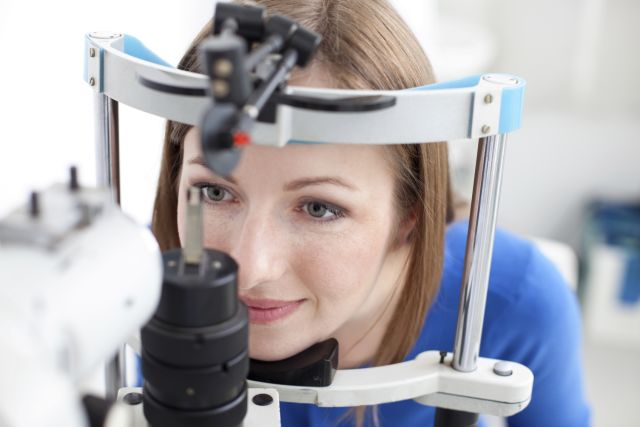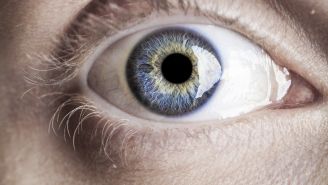You probably know that people with diabetes have trouble with blood sugar. But did you know about one-third develop an eye disease called diabetic retinopathy, and it often leads to vision loss, and even blindness? If you answered “no,” you’re in good company: A study found many people with diabetes have no idea their vision could be at risk.
Eyeballing the problem
To find out if people with diabetes were getting the right vision care, researchers at Johns Hopkins University looked at data from the government’s large National Health and Nutrition Examination Survey. Alarmingly, they discovered that about 55 percent of people over 40 with a certain diabetes-related eye condition said that no doctor or healthcare provider (HCP) had ever told them that diabetes was affecting their eyes. And about 29 percent of those were already experiencing vision loss.
The study, published in the journal JAMA Ophthalmology, also found that about two in five never had a full eye exam that included dilating the pupils—a crucial step in detecting diabetes-related eyesight issues.
Vision problems are all-too-common complications for people with diabetes, and diabetic retinopathy is the leading cause of blindness among American adults. It occurs when high blood sugar levels, along with high blood pressure, damage small blood vessels in the retina. The vessels start to break down and leak fluids into the surrounding eye tissue. The Hopkins study specifically looked at diabetic macular edema, caused by diabetic retinopathy, in which the part of the eye that handles in-focus, straight-ahead eyesight swells, blurring vision and potentially leading to blindness.
What does retinopathy look like?
There are often no symptoms, and no pain at all in the early stages of diabetic retinopathy. You can have the condition for a long time and not know it. Typically, once you notice the symptoms, significant damage has already happened.
At some point, diabetic retinopathy may display the following symptoms:
- Problems reading or seeing things close up
- Blurred or altered vision
- Floating spots—"floaters"—in your field of vision
- Seeing a shadow across your vision
- Washed-out colors
- Poor night vision
- Eye discomfort, pressure or persistent redness
- Blindness
Don’t let diabetes dull your vision
The good news is that retinopathy can be successfully treated in nearly all cases if it’s caught early. But that means regular, comprehensive eye exams—at least once a year by an opthalmologist or optometrist—are vital.
Treatments for diabetic retinopathy vary depending on the type of damage to the eye and how far the condition has progressed. Injection therapy, in which a medication is inserted directly into your eye, may be recommended. Laser treatments can reduce the size of irregular blood vessels and ease swelling in the eye. Some people may need surgery to remove scar tissue and blood from the eyes, or to repair a torn or detached retina.
As with so many things in life, an ounce of retinopathy prevention is worth a pound of cure. Here are the top three ways to keep your vision sharp if you’ve got type 1 or type 2 diabetes:
- Keep your blood sugar under good control and your diet healthy.
- See an ophthalmologist or optometrist at least yearly for an eye exam, including pupil dilation.
- Address any signs of retina damage quickly to reduce the risk of lasting vision loss.






